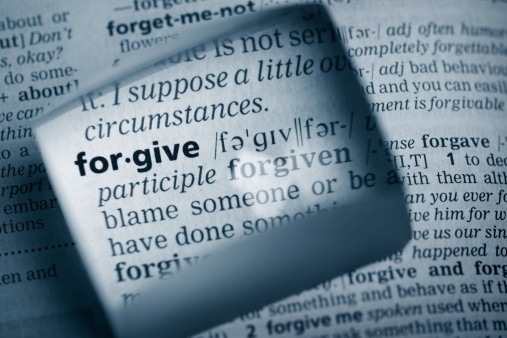
Can you get what is fair in your divorce?
Many people start by telling their attorneys that they want what is “fair” in the divorce only to be told that this is not realistic. “Fair is what happens in St. Paul for 11 days before Labor Day” is the common expression aimed at averting divorcing people from striving for a fair settlement.
I understand those concerns about “fair”. Divorce can be so emotional that nothing presented as a settlement offer will be regarded as “fair” and settlement discussions can therefore drag on forever. Indeed, if you are faced with a divorce that you do not want, the notion that any proposal is “fair” can seem offensive or even inflammatory. Also, in settlement negations, “fair” is often used as an accusation. “I have offered something fair. Why won’t you accept this?” Of course, in a divorce a husband and wife are likely to have different understandings of fair. Describing your offer as “fair” as compared to your spouse’s offer, (which by implication must be unfair), is likely to feel insulting to your spouse and will not be productive.
Despite all of this, I think it may be a mistake to discard notions of fairness altogether. Indeed, while we all have different ideas about what truly
is fair, it is important, sometimes even crucial, that certain things
seem fair, at least to a degree. A divorce settlement that one or both parties strongly believe is unfair is likely to unravel or create problems if it is not addressed. Indeed, the success and durability of a divorce agreement may depend a great deal on whether the agreement is viewed as fair by the parties.
To get an agreement that is durable in the future, it may be important to pay some attention to what you
and your spouse perceive as fair. At the same time, in order to get past the gridlock that arguing about fairness can create, it is equally important to be flexible in our ideas of fairness and to work toward getting a better understanding of what lies underneath the feeling of unfairness. If the sense of unfairness has more to do with an unmet emotional need, (which is common in divorce), it may be helpful to seek the assistance of counselors or coaches to help you think of how those needs can be addressed. Similarly, if there is a tangible part of the divorce agreement that feels fundamentally unfair to both spouses for legal or financial reasons, it may be necessary to go deeper into their understanding of the finances or the law to help address some of these fundamental concerns.
The great challenge in the divorce world is that, generally, you are dealing with areas of scarcity and loss and narrow definitions of fair can almost never be met. However, for people who are willing to practice some measure of empathy and to work to try to view the fairness through the lens of the other spouse, notions of fairness can be a powerful tool toward finding resolution. For more information on how this can be done, and for professionals with skill in addressing these issues go to
www.collaborativelaw.org or www.divorcechoice.com.
 Nearly every celebrity seems to have a divorce under their belt, but what about our local public figures – our children’s teachers, our mayors, city councilmen – how does the pubic feel about “those” public figures when they are facing divorce? About midway through the year I had noticed my daughter’s teacher’s name on Facebook (we have mutual friends) going from FIRST MARRIED to FIRST MARRIED MAIDEN, and I thought a divorce must be imminent. Admittedly my first thought was how a divorce might affect her teaching abilities for MY child. Selfish? Perhaps. Or are those type of reactions expected with public careers? Her private life is certainly none of my business, but is it easy to check your feelings at the door? Certainly not. The University of Minnesota is currently doing a study on the impact of divorce on a person’s career. Those results will be interesting to see, especially as there are careers can have a big impact on the public sector.
Some may say that their divorce was the best thing that ever happened to their career. Perhaps work was a necessary distraction as their marriage crumbled at home. But on the other hand some people admit that they simply could not focus at work with their marriage on the rocks. Sometimes people can attribute their careers to actually being the CAUSE of their divorce. A husband that travels all week, a wife who tends bar on the weekends, a stay at home parent who never gets a break, and more often than not, simply the demands and stress of a person’s career can tear apart a marriage. Some careers are statistically at a higher risk for divorce, almost as if divorce is beyond their control.
A few months later as school was coming to a close I noticed my daughter’s teachers name on social media is now: FIRST MAIDEN. Admittedly, my feelings changed from worrying about the affect her divorce would have on my own daughter to feeling horribly sympathetic towards her and her own children. As I leaned more I realized her husband holds a local political office and I began to wonder about the effects the divorce may have on his political career. It’s important to remember that everyone is human, divorce does not define a person, and even if you feel like your divorce is in the spotlight, remember that this too shall pass. Please share your thoughts about public divorces in the comment section below.
Nearly every celebrity seems to have a divorce under their belt, but what about our local public figures – our children’s teachers, our mayors, city councilmen – how does the pubic feel about “those” public figures when they are facing divorce? About midway through the year I had noticed my daughter’s teacher’s name on Facebook (we have mutual friends) going from FIRST MARRIED to FIRST MARRIED MAIDEN, and I thought a divorce must be imminent. Admittedly my first thought was how a divorce might affect her teaching abilities for MY child. Selfish? Perhaps. Or are those type of reactions expected with public careers? Her private life is certainly none of my business, but is it easy to check your feelings at the door? Certainly not. The University of Minnesota is currently doing a study on the impact of divorce on a person’s career. Those results will be interesting to see, especially as there are careers can have a big impact on the public sector.
Some may say that their divorce was the best thing that ever happened to their career. Perhaps work was a necessary distraction as their marriage crumbled at home. But on the other hand some people admit that they simply could not focus at work with their marriage on the rocks. Sometimes people can attribute their careers to actually being the CAUSE of their divorce. A husband that travels all week, a wife who tends bar on the weekends, a stay at home parent who never gets a break, and more often than not, simply the demands and stress of a person’s career can tear apart a marriage. Some careers are statistically at a higher risk for divorce, almost as if divorce is beyond their control.
A few months later as school was coming to a close I noticed my daughter’s teachers name on social media is now: FIRST MAIDEN. Admittedly, my feelings changed from worrying about the affect her divorce would have on my own daughter to feeling horribly sympathetic towards her and her own children. As I leaned more I realized her husband holds a local political office and I began to wonder about the effects the divorce may have on his political career. It’s important to remember that everyone is human, divorce does not define a person, and even if you feel like your divorce is in the spotlight, remember that this too shall pass. Please share your thoughts about public divorces in the comment section below.  Nearly every celebrity seems to have a divorce under their belt, but what about our local public figures – our children’s teachers, our mayors, city councilmen – how does the pubic feel about “those” public figures when they are facing divorce? About midway through the year I had noticed my daughter’s teacher’s name on Facebook (we have mutual friends) going from FIRST MARRIED to FIRST MARRIED MAIDEN, and I thought a divorce must be imminent. Admittedly my first thought was how a divorce might affect her teaching abilities for MY child. Selfish? Perhaps. Or are those type of reactions expected with public careers? Her private life is certainly none of my business, but is it easy to check your feelings at the door? Certainly not. The University of Minnesota is currently doing a study on the impact of divorce on a person’s career. Those results will be interesting to see, especially as there are careers can have a big impact on the public sector.
Some may say that their divorce was the best thing that ever happened to their career. Perhaps work was a necessary distraction as their marriage crumbled at home. But on the other hand some people admit that they simply could not focus at work with their marriage on the rocks. Sometimes people can attribute their careers to actually being the CAUSE of their divorce. A husband that travels all week, a wife who tends bar on the weekends, a stay at home parent who never gets a break, and more often than not, simply the demands and stress of a person’s career can tear apart a marriage. Some careers are statistically at a higher risk for divorce, almost as if divorce is beyond their control.
A few months later as school was coming to a close I noticed my daughter’s teachers name on social media is now: FIRST MAIDEN. Admittedly, my feelings changed from worrying about the affect her divorce would have on my own daughter to feeling horribly sympathetic towards her and her own children. As I leaned more I realized her husband holds a local political office and I began to wonder about the effects the divorce may have on his political career. It’s important to remember that everyone is human, divorce does not define a person, and even if you feel like your divorce is in the spotlight, remember that this too shall pass. Please share your thoughts about public divorces in the comment section below.
Nearly every celebrity seems to have a divorce under their belt, but what about our local public figures – our children’s teachers, our mayors, city councilmen – how does the pubic feel about “those” public figures when they are facing divorce? About midway through the year I had noticed my daughter’s teacher’s name on Facebook (we have mutual friends) going from FIRST MARRIED to FIRST MARRIED MAIDEN, and I thought a divorce must be imminent. Admittedly my first thought was how a divorce might affect her teaching abilities for MY child. Selfish? Perhaps. Or are those type of reactions expected with public careers? Her private life is certainly none of my business, but is it easy to check your feelings at the door? Certainly not. The University of Minnesota is currently doing a study on the impact of divorce on a person’s career. Those results will be interesting to see, especially as there are careers can have a big impact on the public sector.
Some may say that their divorce was the best thing that ever happened to their career. Perhaps work was a necessary distraction as their marriage crumbled at home. But on the other hand some people admit that they simply could not focus at work with their marriage on the rocks. Sometimes people can attribute their careers to actually being the CAUSE of their divorce. A husband that travels all week, a wife who tends bar on the weekends, a stay at home parent who never gets a break, and more often than not, simply the demands and stress of a person’s career can tear apart a marriage. Some careers are statistically at a higher risk for divorce, almost as if divorce is beyond their control.
A few months later as school was coming to a close I noticed my daughter’s teachers name on social media is now: FIRST MAIDEN. Admittedly, my feelings changed from worrying about the affect her divorce would have on my own daughter to feeling horribly sympathetic towards her and her own children. As I leaned more I realized her husband holds a local political office and I began to wonder about the effects the divorce may have on his political career. It’s important to remember that everyone is human, divorce does not define a person, and even if you feel like your divorce is in the spotlight, remember that this too shall pass. Please share your thoughts about public divorces in the comment section below. 



 Having friends scattered throughout the country has shown me just how drastic divorce proceedings and turnarounds can be. My friend in Baltimore, Maryland, who was married for 5 years with no kids, had no battles over property division, and her divorce still took just over 2.5 years to complete, including a mandatory year of separation before filing (this law has since changed recently for those without children). A friend in Milwaukee, Wisconsin, her divorce with one child and a business involved, took just 6 months to the date. And my good friends (haha), Miranda Lambert and Blake Shelton’s Oklahoma divorce after four years of marriage complete with pre-nup and no kids, took just days from when they filed.
Here in Minnesota the length of time to complete a divorce depends upon several things, including custody, parenting time, child support, and division of debts and property. It can take anywhere from about 6 weeks to a year and a half or more, depending upon whether the parties are cooperating, and depending upon the issues involved. The length of a divorce also largely depends on how the case is resolved. For example, divorcing collaboratively, where both party’s attorneys agree to settle without going to trial and the underlying threat of litigation, can significantly reduce the time it take to complete the divorce for several reasons, the biggest factor being avoiding months awaiting a divorce trial.
Divorce is the time to practice patience, and to always prepare yourself for the divorce process to take longer than anticipated. Even in our instant gratification society where you can have Amazon deliver within the hour, your divorce could take months to years. No matter how long your divorce proceedings may take it is important to remember that divorce never really ends with a “victory” by either party. Both parties typically leave the marriage with substantially less material wealth than they started with prior to the divorce. Occasionally, you may hear about a spouse receiving a very large settlement or substantial alimony compensation. But more commonly, both spouses must compromise in order to reach an agreement. If there are any real “winners” in the process, it’s those who maintain positive relationships with an ex-spouse so that they are able to successfully co-parent their children.
Having friends scattered throughout the country has shown me just how drastic divorce proceedings and turnarounds can be. My friend in Baltimore, Maryland, who was married for 5 years with no kids, had no battles over property division, and her divorce still took just over 2.5 years to complete, including a mandatory year of separation before filing (this law has since changed recently for those without children). A friend in Milwaukee, Wisconsin, her divorce with one child and a business involved, took just 6 months to the date. And my good friends (haha), Miranda Lambert and Blake Shelton’s Oklahoma divorce after four years of marriage complete with pre-nup and no kids, took just days from when they filed.
Here in Minnesota the length of time to complete a divorce depends upon several things, including custody, parenting time, child support, and division of debts and property. It can take anywhere from about 6 weeks to a year and a half or more, depending upon whether the parties are cooperating, and depending upon the issues involved. The length of a divorce also largely depends on how the case is resolved. For example, divorcing collaboratively, where both party’s attorneys agree to settle without going to trial and the underlying threat of litigation, can significantly reduce the time it take to complete the divorce for several reasons, the biggest factor being avoiding months awaiting a divorce trial.
Divorce is the time to practice patience, and to always prepare yourself for the divorce process to take longer than anticipated. Even in our instant gratification society where you can have Amazon deliver within the hour, your divorce could take months to years. No matter how long your divorce proceedings may take it is important to remember that divorce never really ends with a “victory” by either party. Both parties typically leave the marriage with substantially less material wealth than they started with prior to the divorce. Occasionally, you may hear about a spouse receiving a very large settlement or substantial alimony compensation. But more commonly, both spouses must compromise in order to reach an agreement. If there are any real “winners” in the process, it’s those who maintain positive relationships with an ex-spouse so that they are able to successfully co-parent their children. 
 Co-parenting can be challenging even in the most amicable divorces, but there are some personalities disorders that make co-parenting downright difficult. Among these include, but are not limited to: bipolar disorder, borderline personality disorder, and narcissistic personality disorder. We are going to focus on narcissists in this post. Narcissists have a magnified sense of self-importance and lack they empathy for others. Narcissists insist on getting their way regardless of how it may affect others, even their own children. They may make promises to the children in order to gain compliance from the child, then refuse to honor the promises. They can be arrogant, self-centered, manipulative, demanding, and vain. As co-parents, these individuals often feel superior to their former spouse. It is challenging to reason with a narcissist, or attempt to try to get them to see the situation from someone else’s point of view, which makes co-parenting together a great feat.
Sound familiar? Most importantly you must know that your ex’s personality disorder does not need to define your divorce. One of the best things that you can do in this situation is file a parenting plan with the courts. A parenting plan will outline anything from daily routines to holiday schedules. When dealing with a narcissist the more information you have laid out in writing, the more black and white it becomes. A parenting plan with help to maintain firm boundaries with your ex.
When co-parenting with a narcissist you may need to keep your expectations low. You cannot expect the narcissist to tackle parenting with the same parental instincts that you have. What seems like second nature to you, may never cross a narcissist’s radar. Because a narcissist places no value on their children’s feelings, there will likely be emotional messes to clean up. Get your children (and you) into therapy and make it a regular and “normal” part of their lives.
Take comfort in knowing that you are not alone. There are support groups out there, both online and in person, that are aimed specifically towards coping with a narcissistic ex. Divorce is never easy on children. Coping with a narcissistic parent makes a stressful situation even more difficult, but not impossible. Educate yourself on co-parenting through these challenging times, and also commit to self-care to provide some reprieve.
Co-parenting can be challenging even in the most amicable divorces, but there are some personalities disorders that make co-parenting downright difficult. Among these include, but are not limited to: bipolar disorder, borderline personality disorder, and narcissistic personality disorder. We are going to focus on narcissists in this post. Narcissists have a magnified sense of self-importance and lack they empathy for others. Narcissists insist on getting their way regardless of how it may affect others, even their own children. They may make promises to the children in order to gain compliance from the child, then refuse to honor the promises. They can be arrogant, self-centered, manipulative, demanding, and vain. As co-parents, these individuals often feel superior to their former spouse. It is challenging to reason with a narcissist, or attempt to try to get them to see the situation from someone else’s point of view, which makes co-parenting together a great feat.
Sound familiar? Most importantly you must know that your ex’s personality disorder does not need to define your divorce. One of the best things that you can do in this situation is file a parenting plan with the courts. A parenting plan will outline anything from daily routines to holiday schedules. When dealing with a narcissist the more information you have laid out in writing, the more black and white it becomes. A parenting plan with help to maintain firm boundaries with your ex.
When co-parenting with a narcissist you may need to keep your expectations low. You cannot expect the narcissist to tackle parenting with the same parental instincts that you have. What seems like second nature to you, may never cross a narcissist’s radar. Because a narcissist places no value on their children’s feelings, there will likely be emotional messes to clean up. Get your children (and you) into therapy and make it a regular and “normal” part of their lives.
Take comfort in knowing that you are not alone. There are support groups out there, both online and in person, that are aimed specifically towards coping with a narcissistic ex. Divorce is never easy on children. Coping with a narcissistic parent makes a stressful situation even more difficult, but not impossible. Educate yourself on co-parenting through these challenging times, and also commit to self-care to provide some reprieve. 
 No one imagines they will find themselves single, divorced, and living in a 4 bedroom house in the suburbs alone, and then it happens. So what do you do when you wake up and realize that your life is not at all what you ever imagined it would be? How do you “cope” and “mourn” the loss of the life you had been planning for yourself?
First, remember you are not alone. You are never alone in this. Lean on your friends, family, and a good support group – whether it’s a support group you created with a network of friends and family, or a more formal divorce support group in your area. There are so many resource out there, find people/places/networks that you feel comfortable with. Seek out professional counseling or therapy, sometimes just talking about these hopes and dreams that could have/should have/would have been to a neutral party can be such a relief.
Know that it is ok to mourn this loss. For you it may be the loss of the “perfect family” you had envisioned – whether you never had kids and always wanted them, or had 1 or 2 and had wanted more. Maybe for someone else who is forced to go back to work because of the divorce, it may be the loss of being able to stay at home with the children. Perhaps it’s the loss of a certain lifestyle one may have gotten used to or thought they would attain someday, whether financially or within a certain social circle. Maybe divorce forced you to move to new area and you are mourning the loss of being close to your friends, in a certain school district for your children, or even simply mourning the loss of your home. It’s not irrational to mourn these things, whether they are lifestyles and material items you no longer have, or were simply hopes for the future – it is ok.
Take comfort in knowing that you never know what the future has in store for you. Maybe you always wanted kids and suddenly find yourself dating someone with children that you simply adore (young or old). Think you’re too old for that reality? Maybe you will remarry and have pile of grandchildren in your future. Maybe having to go back to work will one day lead to a promotion that allows you to take your children on trips of a lifetime and provide for their college education. There is a quote by Joseph Campbell that reads, “We must be willing to let go of the life we had planned, so as to have the life that is waiting for us.” Remember that.
No one imagines they will find themselves single, divorced, and living in a 4 bedroom house in the suburbs alone, and then it happens. So what do you do when you wake up and realize that your life is not at all what you ever imagined it would be? How do you “cope” and “mourn” the loss of the life you had been planning for yourself?
First, remember you are not alone. You are never alone in this. Lean on your friends, family, and a good support group – whether it’s a support group you created with a network of friends and family, or a more formal divorce support group in your area. There are so many resource out there, find people/places/networks that you feel comfortable with. Seek out professional counseling or therapy, sometimes just talking about these hopes and dreams that could have/should have/would have been to a neutral party can be such a relief.
Know that it is ok to mourn this loss. For you it may be the loss of the “perfect family” you had envisioned – whether you never had kids and always wanted them, or had 1 or 2 and had wanted more. Maybe for someone else who is forced to go back to work because of the divorce, it may be the loss of being able to stay at home with the children. Perhaps it’s the loss of a certain lifestyle one may have gotten used to or thought they would attain someday, whether financially or within a certain social circle. Maybe divorce forced you to move to new area and you are mourning the loss of being close to your friends, in a certain school district for your children, or even simply mourning the loss of your home. It’s not irrational to mourn these things, whether they are lifestyles and material items you no longer have, or were simply hopes for the future – it is ok.
Take comfort in knowing that you never know what the future has in store for you. Maybe you always wanted kids and suddenly find yourself dating someone with children that you simply adore (young or old). Think you’re too old for that reality? Maybe you will remarry and have pile of grandchildren in your future. Maybe having to go back to work will one day lead to a promotion that allows you to take your children on trips of a lifetime and provide for their college education. There is a quote by Joseph Campbell that reads, “We must be willing to let go of the life we had planned, so as to have the life that is waiting for us.” Remember that. 
